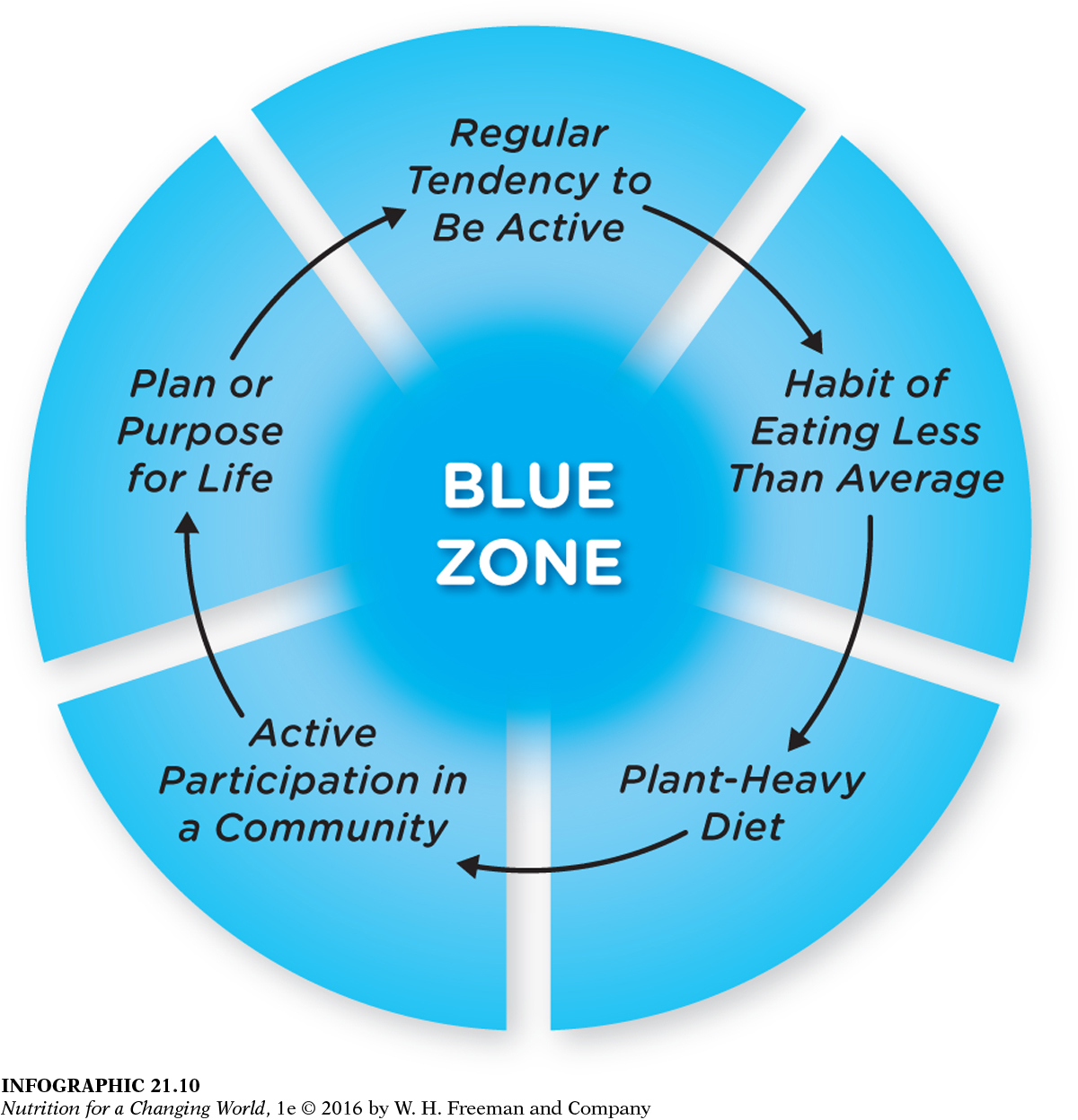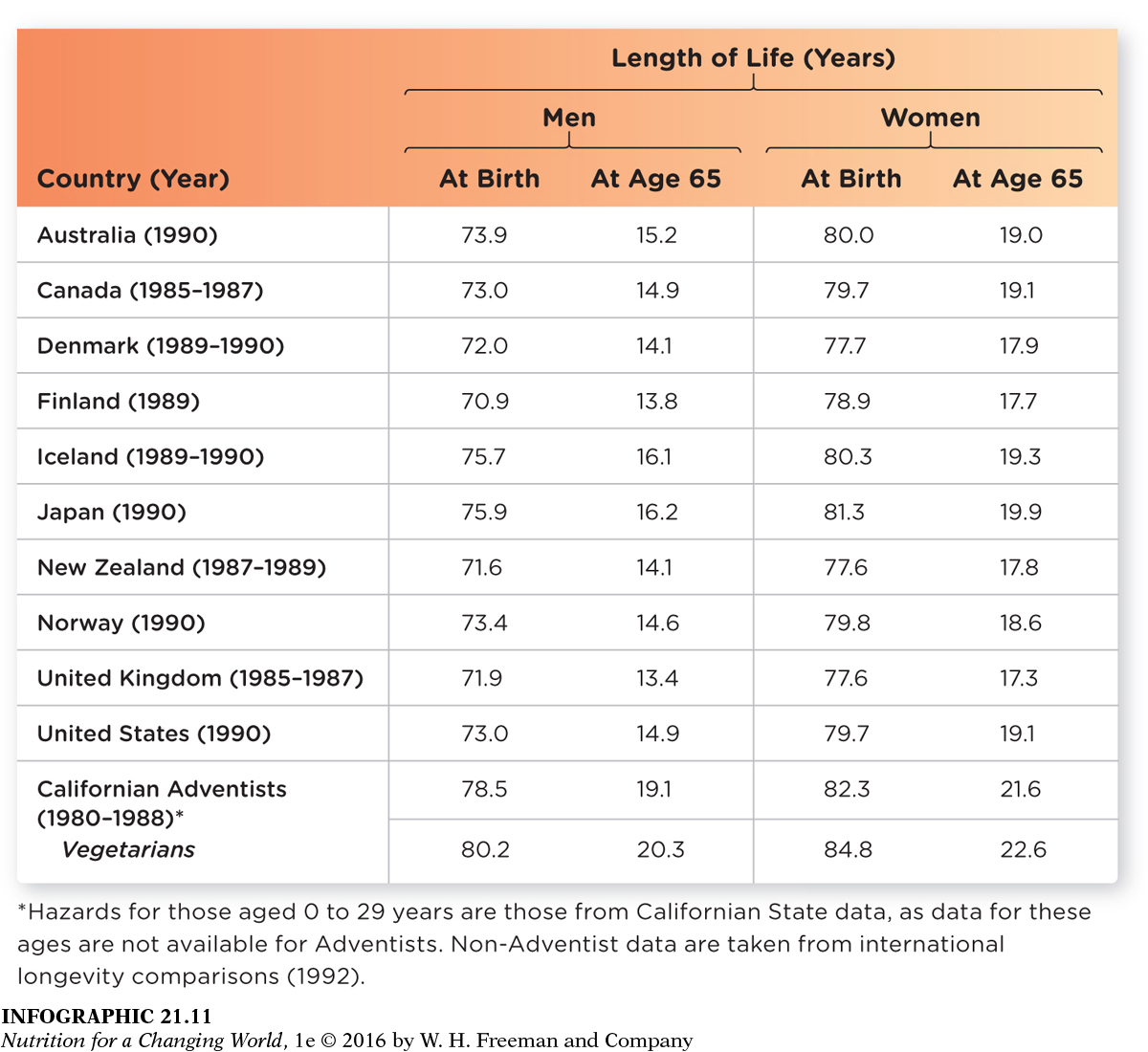BLUE ZONE SECRETS
Eating nutritious foods and exercising seem obvious, but there are some other features of Blue Zones that seem to contribute to longer life. Most important of these are psychosocial variables like social connectedness and having a “plan” or a “purpose.” Residents of Blue Zones are distinctive in the way they value their elders, making them important members of the community. As journalist Buettner said in his Ted Talk, with regard to Sardinia, “The older you get, the more equity you have, the more wisdom you’re celebrated for.” Older people in Blue Zones also tend to find a clear reason to get up in the morning, even after they stop working. In Okinawa, for example, there is no word for “retirement.” Having a plan or purpose is not just good for mental health; it’s actually an independent contributor to longevity. “The dietary factors and physical activity and BMI seem to operate independently of the psychosocial factors,” Fraser says.

There are also particular classes of foods that tend to be embraced in Blue Zone diets—in particular, legumes and nuts. The Japanese tend to eat a lot of tofu, made from soybeans (a legume), while Adventists eat a lot of both legumes and nuts.
Interestingly, this penchant for nuts was developed long before there were scientific studies supporting their value. “We were actually the first study to publish anything positive about nuts and that was back in the mid-1990s,” says Fraser, who notes that the people with higher nut consumption in their study seemed to be protected against coronary artery disease. They don’t know all the reasons for that, but other studies have shown that nuts tend to lower low-density lipoprotein cholesterol. They’re also high in fiber.
Fraser says their conclusions about nuts were a bit controversial when they were first presented. “Most nutritionists at the time felt that nuts were a kind of snack food and they often were salted and they were fatty and so forth and they were not recommending them for a good healthy diet.” But Fraser had done a fellowship at the University of Minnesota where some of the seminal work was done on the relationship of different fatty acids to blood cholesterol and heart disease, so he had reason to suspect that nuts would be healthful because they are low in saturated fat and often high in monounsaturated fats. “We were a bit surprised to see the power that nuts had,” says Fraser. “Day-to-day, they decrease the risk of heart attacks by about 50 percent.” A quarter of Adventists eat nuts five or more times a week. (INFOGRAPHIC 21.10)

Question 21.10
 Which behaviors or practices of residents of Blue Zones are common in your own community? Which are uncommon?
Which behaviors or practices of residents of Blue Zones are common in your own community? Which are uncommon?
The factors to consider in answering this question include
Regular Tendency to Be Active
Habit of Eating Less Than Average
Plant-Heavy Diet
Active Participation in a Community
Plan or Purpose for Life
Beyond Centenarians
Many Blue Zones have become famous for the numbers of centenarians (people at least 100 years of age) in the population. Although that is one measure of longevity, it’s not necessarily the most important one for determining the overall health of a population. These very long-lived individuals represent a very small fraction of the total population, and they could conceivably be individuals with a genetic propensity that conveys longer life. The Adventist study is different because it looked at the benefit of healthful choices on life expectancy of the population as a whole.
“The fact that Adventist men live, on average, seven or so years longer than their Californian counterparts does inevitably mean that we’re going to have a higher proportion of centenarians, too,” explains Fraser. “But we believe it’s more meaningful to not focus on just one small extreme group but to talk about whether the life expectancy of the whole population is being moved.” The Adventists get a boost to life expectancy across the lifespan. (INFOGRAPHIC 21.11)

Question 21.11
 To what age was a Californian Adventist woman who was 65 years old in 1988 expected to live?
To what age was a Californian Adventist woman who was 65 years old in 1988 expected to live?
A Californian Adventist woman who was 65 years old in 1988 was expected to live to 87.6 years old.
What are the main lessons of the Adventist study for individuals wanting to increase their chances of living a long, full life? “I think our results provide pretty strong evidence that a plant-based diet has quite a lot of advantages, whether you’re looking at blood pressure or diabetes or life expectancy or coronary heart disease or certain cancers,” says Fraser, who is himself a pescatarian (a vegetarian who eats fish).
Fraser doesn’t expect the non-Adventist population to become vegetarian any time soon, but he does think it’s reasonable to suggest that people cut back on meat consumption. “You can start to talk about things such as meatless days or emphasizing certain vegetable food groups,” he notes.
Largely because of their nutritional habits, the Adventists are some of the healthiest and longest-lived people on the planet. Their example shows, pretty conclusively, that making well-informed choices regarding nutrition can have large effects on health. In that sense, their dietary and exercise habits can serve as a model for other communities. If living long and prospering is one of your goals, then you might want to consider changing your lifestyle to more closely mirror that of the Adventists. To quote Mr. Spock, “It’s only logical.”